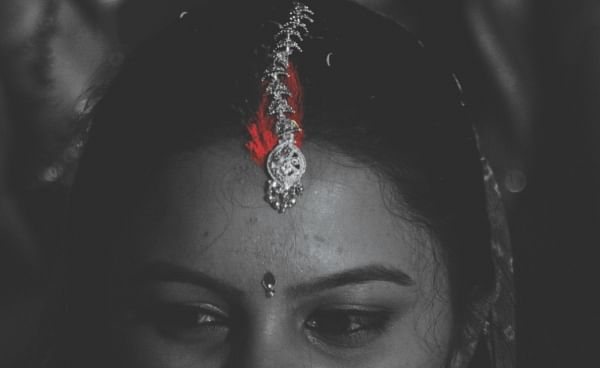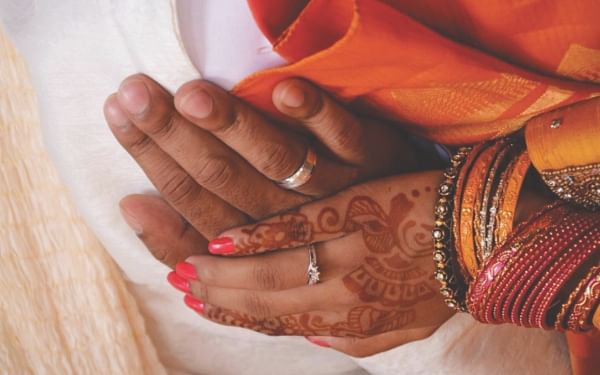| Home - Back Issues - The Team - Contact Us |
 |
| Volume 11 |Issue 38| September 28, 2012 | |
|
|
Human Rights Love isn't all you need Sushmita S Preetha Marriage, even in this day and age, is often considered the ultimate act of romance. It is the sacred union of two souls, the signifier of a happily-ever-after. The reality of marriage, however, is not always as rosy and as romantic as Bollywood or Hollywood movies would have us believe. In Bangladesh, as in many other countries of the world, marriage is an institution governed by strict laws that hinder women's mobility and access to resources. Discriminatory personal laws that determine marriage, separation and divorce, trap women into staying into unhappy or abusive marriages or drive them into poverty when marriages fail. Although most laws of this country are applicable to all citizens irrespective of class, race, sex or religion, there are still separate personal laws for Muslims, Hindus and Christians that govern marriage, separation and divorce. A 109-page report published by the Human Rights Watch earlier this month documents how all three sets of personal laws discriminate against women, failing to recognise marital property and division on an equal basis after divorce or after separation. The report is based on interviews with 255 people, including 120 women who experienced the discriminatory effects of Bangladesh's personal laws, as well as with judges, family court lawyers, women's rights experts, and government officials. Muslim laws define marriage as a contract, which allows women the opportunity to negotiate economic protection during marriage. In reality, however, a majority of women, especially those from non-privileged backgrounds, often have little knowledge about the contract or lack the ability to negotiate their terms and preferences. Similarly, even when mahr (maintenance) is written into the contract, the amount is often insignificant and does not reflect the woman's overall contribution to the marriage.
All Muslim men have the right to divorce their wives at will, but Muslim women may only do so if their husbands confer them that right in the marriage contract. They can also get a divorce if their husband gives consent, or through court intervention only under specific circumstances. Upon divorce, women are entitled to maintenance for only 90 days from the date of official notice, or till the birth of the child if the wife is pregnant. Polygamy is allowed in Islam, under some procedural conditions, which are rarely ever followed. For instance, none of the women interviewed by the HRW in polygamous marriages had consented to polygamy or experienced an arbitration council review.
Hindu men are allowed to marry any number of times, without any preconditions; divorce is not permitted for either men or women. Hindu women can file for separate residence and maintenance from their husbands in family courts, but, as the HRW report states, “[e]ven those minimal rights are nullified if a court finds that the woman is “unchaste,” has converted to another religion or fails to comply with a court decree ordering restitution of “conjugal rights.” In addition, they must show proof of marriage, which is difficult for women to obtain given that the Hindus do not have a formal registration system. Meanwhile, both Christian men and women can file for divorce, but on restricted grounds. While men only need to claim that their wives committed adultery, women must prove adultery and one of a range of other acts, including conversion to another religion, bigamy, rape, sodomy, bestiality, desertion for two years, or cruelty. Women are entitled to alimony and maintenance during marriage, but on the condition that they remain “chaste”.
Women do contribute financially to the household homes, businesses, assets, for instance through selling off their own paternal property, taking out loans or paying dowry, but without a title deed to any of these properties, their contributions are almost always sidelined.
As a result, women are often forced to remain in unhappy or abusive relationships since they feel that once divorced, they would have nowhere to go and very little chance of securing maintenance. According to the HRW report, “Personal laws' failure to address control and use of marital property during marriage, its division upon divorce, and their limitations on access to maintenance have been major barriers to escaping domestic abuse, which affects more than half of all married women in Bangladesh.” Meanwhile, divorced or separated women highlight their vulnerable plight, stating that without marketable skills, they are forced to live on the streets, pull children out of school to work, struggle with ill-health and so on. Women who attempt to assert their limited rights through legal recourse find the judicial process lengthy, expensive and fraught with other difficulties. “Abuse of process and frivolous counter-claims by men trying to avoid paying mahr or maintenance, such as claims for restitution of conjugal rights and criminal theft charges, constitute another barrier to justice for divorced or separated women,” states the HRW report. A court can order a woman, in the name of “restitution of conjugal rights,” to sleep with her husband, even though it violates basic human rights. Many men file counter-lawsuits to harass their wives when they file for divorce or maintenance. It is especially oppressive for Hindu women, since their husbands can petition for restitution of conjugal rights when the former seek separate residence and maintenance. Meanwhile, the laws, especially those setting out the criteria for granting maintenance, are vague. As such, this lack of clarity is problematic for women of all religions, and even after protracted legal battles, they often get very small amounts as maintenance. The situation is particularly difficult for Muslim women seeking pre-divorce maintenance, since their husbands can divorce them arbitrarily, thereby eliminating their entitlement to mahr altogether. We have made significant achievements in terms of women's empowerment in the forty years since independence, but we continue to hold on to regressive and antiquated laws dating back to colonial times when it comes to marriage, separation, divorce, and economic rights after separation and divorce. Even though many women's rights activists, NGOs and civil society members have pushed for reform either uniform secular civil laws, or failing that, at least separate reform for each group, their efforts have been met with vehement opposition from conservative fractions of each group. Muslim religious-political leaders argue that reforms to Muslim laws would violate the Shari'a, even though other Muslim countries whose laws incorporate the Shari'a, eg Tunisia, Turkey, Malaysia, Indonesia, Morocco, Singapore, have reformed their laws to reflect a more equal and respectful stance on women. There is considerable resistance from conservative Hindu leaders too who oppose reforms invoking their history of marginalisation and discrimination. Holding onto their personal laws, they claim, is their way of preserving their culture and heritage. Meanwhile, the Hindu Bibaho Ain Pronoyone Naree Jot (Women's Coalition for the preparation of a Hindu marriage law), have called for compulsory marriage registration, and equal rights in marriage and divorce. Bangladesh is a signatory to CEDAW and other international treaties that guarantee equality within and after marriage. Yet, it continues to discriminate between men and women with and after marriage. In fact, as the HRW report highlights, Bangladesh has not fully ratified CEDAW because of its reservations to articles 2 and 16. Article 2 says that states have an obligation to eliminate discrimination under law while article 16 says that states must eliminate discrimination in marriage and family relations. Bangladesh has dismissed these articles arguing that they conflict with Shari'a law, despite the fact that CEDAW states that these two articles are essential to the objective and purpose of the treaty It is very depressing that 40 years after independence, we still have not been able to guarantee women equal rights in the private sphere. Even our constitution offers women equality only in the public sphere, choosing to remain silent on matters of the household. But as we all know, real change begins within the family. Till we can reform or eradicate these discriminatory personal laws, women's empowerment will remain an illusion, at best.
|
||||
|


